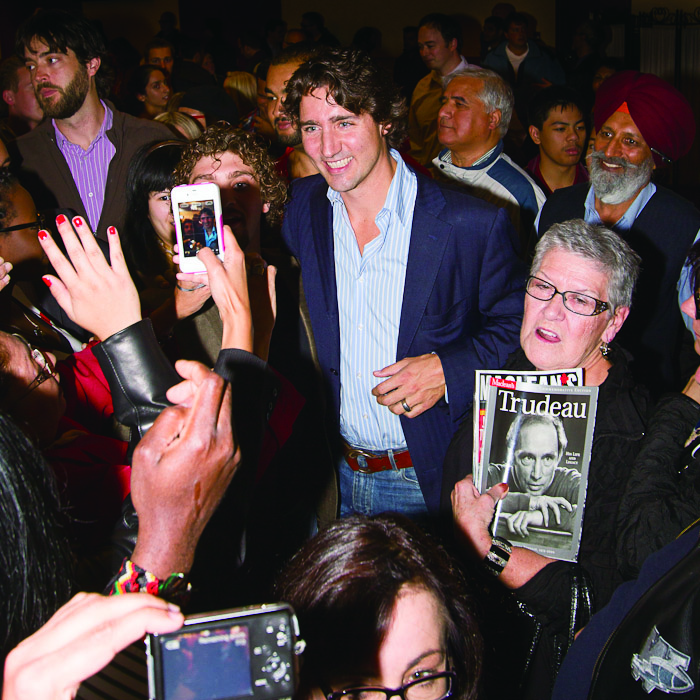As I sit, composing these words, cannons rock the air around me, echoing off the buildings about the Manitoba Legislature in epic remembrance. I have just finished listening to Jian Ghomeshi interview Margaret Atwood on the CBC, and as the cannon fire recedes, Fred Eaglesmith’s “30 Years of Farming” can be heard once again on the stereo.
A few days ago, over dinner, some associates were engaged in a discussion that went from the success of public art education in Britain to the “shortcomings” of Canadian culture. The go-to symbols of Canadiana — maple syrup, hockey and bannock — were brought up, but from there the discussion was mostly a lamentation on the “lack” of other readily identifiable cultural symbols. The dedication Quebecers have for St. Jean Baptiste Day and the fleur-de-lis was held in high regard, while the lack of such comparable “patriotism” seemed to indicate apathy on our behalf.
Canadian philosopher John Ralston Saul has argued that Canadian society is a complex, contradictory beast, one that our political and business elite often ignore, or deny. Saul attributes these actions to a “colonial” mindset, whereby nothing that is accomplished in Canada can compare to what is being done elsewhere — be that elsewhere London, Paris, New York or wherever. Indeed, the dinner table conjecture that even in Montreal, something else is happening to which we are not privy in backwoods Winnipeg falls into the same colonial mind-trap on a regional level.
The fact is there are things going on here; there are people here creating art and contributing to our culture all the time. However, these may be different things than those celebrated by the elites of our country, by our media, or, in our digitalized global age, by elites and the media of other countries to which we — in a colonial mindset — feel the need to measure ourselves against. Why did Stephen Harper sing a Beatles tune at the arts gala, and not “Lost Together,” or “Snowbird?” He’d even have sold me if he’d done “These Eyes.”
In my mind, culture is not created in institutions of learning like the U of M, but is rather dissected, discussed, and either dismissed or put up on pedestals for further inspection in these ivory towers. Culture, in my mind, and according to one definition in Webster’s, is “the sum total of ways of living built up by a group of human beings and transmitted from one generation to another.” By this definition, Canadian culture is what happens on the streets, in the factories and schools, on the farms, rigs, reserves and the waters of Canada by people — any people — who live here.
Barn dances, bingos and bonspiels account for Canadian cultural expression, as do folk festivals and basement punk shows. Church picnics and religious fasting are as much a part of Canadian culture as minor league hockey tournaments and Ukrainian fall suppers. Gang violence and the repercussions of our government’s failed, racist policies of assimilation are part of our Canadian culture, as is rampant resource extraction, the destruction of our natural environment and the resulting negative health effects on local populations.
Canadian culture need not be as canonized as is the culture of European empires, nor our “patriotism” simply expressed by flag waving at sports events, or steadfast dedication to the symbol of a foreign empire that fell on the Plains of Abraham. Celebrating Canadian culture and identity should involve all these things, as well as a commitment to analyze our collective past and learn from the brutal mistakes that contribute, for good or ill, to our national heritage.
Culture is made and maintained by every day people, and that is as it should be. Go out into the streets, into the bars, the museums and galleries, the parks and malls of our great city, and engage in that culture first hand. There is a rich bed of Canadian literature, art and music that can be easily mined here at home. If the examples pushed in public school or by the CBC don’t satiate your tastes, make like oil and gas interests and dig deeper.
But don’t stop there. As a Canadian, or one visiting or studying in Canada, you are part of Canadian culture. Take an active role: volunteer for a community event, or volunteer for this paper! Create art and try to sell it; give it away when you fail. Host a potlatch and sing songs from your balcony until the cops show up. Don’t just sit back and wait for culture to come knocking. If it does, though, don’t be surprised if it’s wearing a Leafs jersey and carrying a hot plate of bannock and maple syrup, humming a Tom Connors tune. Invite it in, hand it a cold Fort Garry, and see where the party goes from there.
Sheldon Birnie enjoys barn dances, vegan potlatches, Al Purdy and SNFU.




